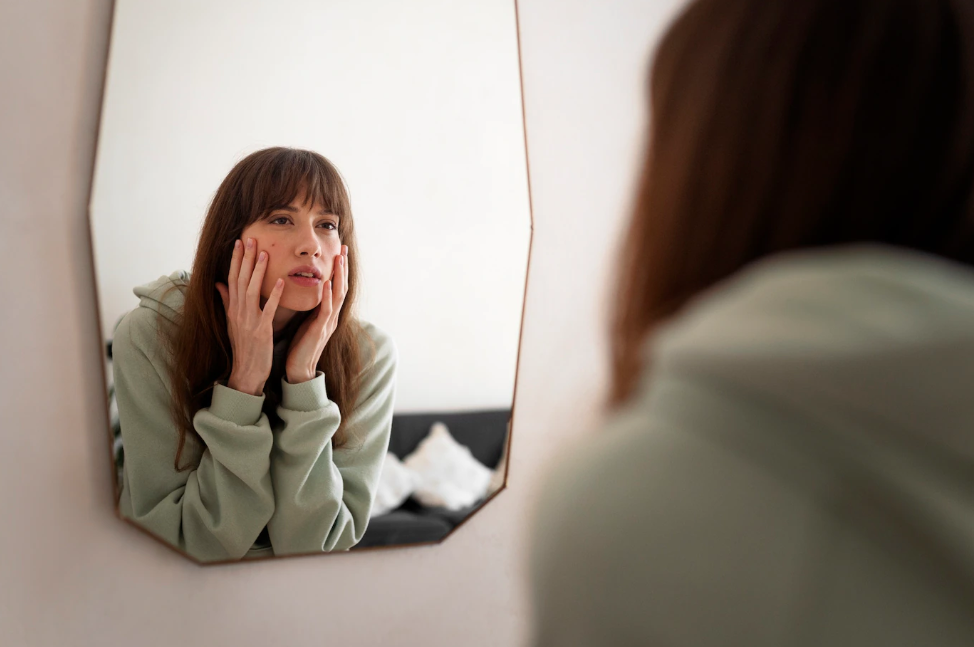Self Love Therapy
Discover why a positive outlook on oneself is essential to leading a happy life.

Selfpause Affirmation App
Download the app to get 1,000’s of affirmation meditations and everything you need to write, record and listen to your own.
Having a healthy attitude towards yourself is a necessity for living a happy life. There are several ways you can practice self love therapy, including recognizing the impact of bad habits and behaviors on your life, taking responsibility for your actions, and learning to embrace your true self. This is not a one-time effort, but a continuous process.
Take responsibility for your actions

Taking responsibility for your actions is a good way to build your self esteem and confidence. It is also a great way to enhance your relationships and your life in general.
Taking responsibility for your actions involves recognizing your role in a particular situation and implementing an appropriate response. It is also important to remember that some aspects of your life are out of your control, so it is best to avoid making excuses when you fail to deliver.
The most important part of taking responsibility for your actions is to make an effort. In fact, you might even want to consider getting help from a third party, such as a therapist, who can help you clarify your own responsibility.
There are many other benefits of taking responsibility for your actions. One of the best reasons is the fact that doing so will empower you to change your life for the better. This is because you will be able to learn more about yourself and your role in life. It will also give you a sense of purpose and meaning.
Other benefits of taking responsibility for your actions include the ability to be more productive and to have more self-confidence. When you take responsibility for your own actions, you are more likely to take responsibility for the actions of others. This will help you develop more trust and intimacy with others, and will help you gain respect.
The most important part of taking responsibility is to make sure that you follow through with what you have promised. This includes only making promises that you can deliver. Also, remember to get enough sleep and eat healthily.
Learn to embrace your most authentic self

Embracing your authentic self can be a very difficult process. Many people have trouble figuring out what they want out of life and expressing themselves openly. There are also a number of mental health issues that may prevent people from embracing their true selves.
Being authentic is important if you want to build meaningful relationships. Authentic people trust themselves and believe that relationships are based on honesty. Those who are authentic feel fulfilled and feel confident in themselves in social situations. They also put themselves in situations that they enjoy. In these situations they are able to connect with others on a deeper level.
Those who are afraid to show their authentic self may be suffering from social anxiety. They may also be victims of oppression within the community or have low self-esteem. This fear is not a good thing because it can make it difficult for people to live their lives.
The first step to embracing your authentic self is to accept your vulnerabilities. Often, people hide their vulnerabilities to fit in with society. However, they are actually gifts. They help add to your uniqueness.
You can also increase your self-esteem by focusing on the positive qualities of your self. Journaling can help you identify the differences between your “presenting” self and your true self. You can also write a letter to a hurtful person to see if their criticism is affecting your self-esteem.
Ultimately, you want to celebrate yourself. Being authentic will help you rise above problems. Being authentic means letting go of things that are no longer helpful to you. It also means accepting your mistakes. When you accept yourself for who you are, you will be able to forgive yourself and enjoy life more.
It’s not a one-time effort

Getting a self love boost from a licensed counselor can go a long way in helping you understand your true self and appreciate the finer things in life. This will help you to be more productive and ultimately happier. This is a worthy investment of time and money. Ultimately, it will also improve your life and the lives of those around you. Putting yourself first will also make you a better and more productive member of society.
A great way to accomplish this is to make yourself a priority by taking time out of your day to do things you enjoy. This may be as simple as a nice walk, a quiet coffee, or a long lunch at the office. These small routines can help you to refocus your attention and make you a better employee and partner. After all, you can’t give the best service to those around you if you aren’t the best at it yourself.
The best self love therapy is to make yourself a priority. This will also help you to better understand yourself and the people around you. In doing so, you will be able to build a more positive and rewarding relationship with yourself and others. After all, no one wants to be in a relationship that is toxic and emotionally draining. This will help you grow into the person you were meant to be. Ultimately, self love therapy is the best medicine you can give yourself. Having a healthy self esteem will make you happier and better able to help others to do the same.
As with most things, you can’t expect miracles to happen overnight. Self love therapy is a lifelong commitment. You need to be honest with yourself to make it work. Thankfully, there are many reputable professionals to help you out.
It’s a continuous process

Practicing self love is essential to living a healthy and happier life. It’s an ongoing process that needs to be constantly maintained. Self love therapy can help heal you from the inside out.
Self love therapy can help you overcome feelings of self-doubt. It can also help you understand and overcome trauma from your past. It can also help you understand your emotions, and help you recognize your negative behaviors.
Practicing self love is important because it can prevent the cycle of self-sabotage. Self-sabotage is when you are unwilling or unable to acknowledge your part in a situation. For example, if you have been working as a lawyer for a long time and are now getting frustrated, you may start to doubt your own capabilities. This can lead to a cycle of poor decision making, which will ultimately lead to negative consequences.
Self love therapy helps you understand how you arrived at this place. It’s helpful to recognize the early experiences that may have contributed to the feelings of unworthiness. You can also learn to accept your decisions and your mistakes. Practicing self love can help you get rid of the negative thoughts and habits that may be contributing to your unhappiness.
Self love therapy is a process that requires continuous effort. It involves recognizing your own needs, determining what you believe in, and taking responsibility for your actions. It’s also important to acknowledge that it will take time to achieve your goals. If you’re feeling stuck, you can always find help from a professional.
When you practice self love, you will find it easier to focus on the positive things in your life. It will also decrease your risk of developing mental health problems.
Our Top FAQ's
There are many ways you can practice self-love in your daily life. Some simple ideas include:
- Take care of your physical needs by eating well, getting enough sleep, and exercising regularly.
- Set boundaries and prioritize your own needs and well-being.
- Practice gratitude and focus on the positive aspects of your life.
- Engage in activities that bring you joy and make you feel good about yourself.
- Treat yourself with kindness and compassion, and speak to yourself in a positive and supportive way.
There are many potential barriers to self-love, including:
- Negative self-talk or critical inner dialogue
- Negative beliefs about oneself, such as low self-esteem or a poor self-image
- Past traumas or negative experiences that have shaped our view of ourselves
- Social or cultural messages that tell us we are not good enough
- Comparison to others and a focus on our perceived flaws or shortcomings
To overcome these barriers, it can be helpful to:
- Identify the specific thoughts or beliefs that are holding you back
- Practice self-compassion and focus on your strengths and positive qualities
- Seek support from a therapist or trusted friend or family member
- Engage in activities that help you build self-esteem, such as volunteering or taking on new challenges
- Reframe your perspective and focus on your progress and personal growth rather than perfection
Self-love therapy can help you improve your mental health and overall well-being by:
- Helping you identify and challenge negative beliefs and thought patterns that are holding you back
- Teaching you coping skills and techniques to manage stress and emotions in a healthy way
- Providing a safe and supportive space to explore and process your feelings and experiences
- Helping you develop a more positive and compassionate relationship with yourself
- Encouraging you to set goals and make positive changes in your life
If you are struggling with negative self-perception, low self-esteem, or a lack of self-compassion, you may benefit from self-love therapy. Other signs that you might benefit from self-love therapy include:
- Difficulty setting boundaries or taking care of your own needs
- Difficulty expressing your feelings or asserting yourself
- A tendency to put the needs of others before your own
- A lack of joy or fulfillment in your life
- Difficulty making positive changes or achieving your goals
There are many techniques and exercises that can be helpful in cultivating self-love during therapy sessions. Some examples include:
- Journaling or writing about your feelings and experiences
- Practicing self-compassion and positive affirmations
- Engaging in mindfulness exercises to increase self-awareness and presence
- Setting and working towards achievable goals
- Engaging in creative activities, such as art or music, to express yourself and cultivate a sense of self-worth
- Seeking out and seeking support from a trusted therapist or support group
I hope this information is helpful! If you have any additional questions or would like further guidance, don’t hesitate to ask.
